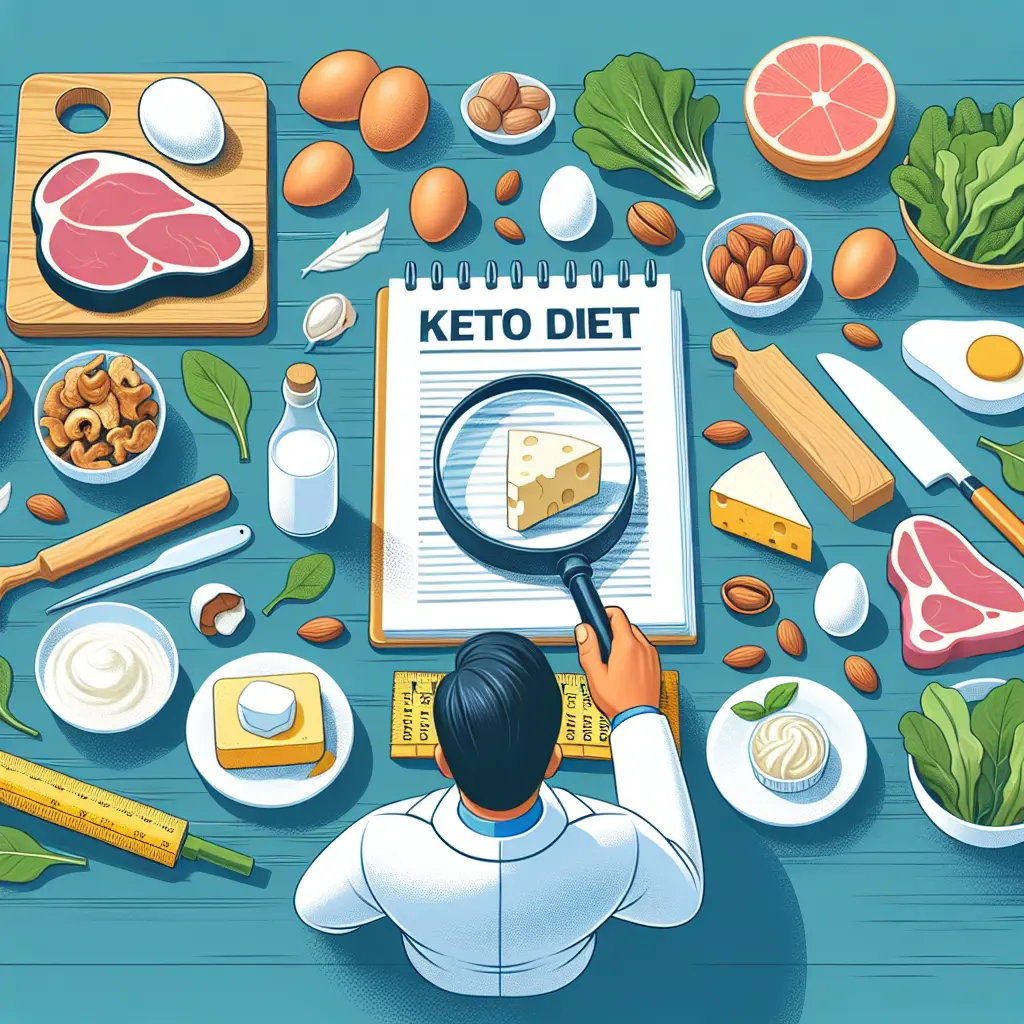
As the keto diet continues to surge in popularity, its nuances become ever more critical to explore. One such aspect is the role of dairy in a ketogenic lifestyle. Whether you're a seasoned keto follower or just starting out, understanding how dairy fits into your low-carb, high-fat regimen is essential. This post delves deep into the world of dairy on keto, exploring everything from keto dairy products to how lactose intolerance fits into the picture.
The Basics of Dairy in Keto Diet
At its core, the keto diet emphasizes minimizing carbohydrate intake in favor of fats and moderate proteins. This shift pushes the body into ketosis, a metabolic state where fat is burned for energy instead of carbs. Here, dairy products, particularly those that are high-fat and low-carb, can be incredibly beneficial. High-fat dairy products like cheese, butter, and certain yogurts can provide not only essential fats but also a palatable variety to meals that can help maintain long-term adherence to the diet.
However, not all dairy is created equal when it comes to keto. Milk, for instance, contains lactose, a sugar that can potentially disrupt ketosis if consumed in large quantities. This is where keto milk alternatives like almond milk, coconut milk, or flaxseed milk come into play, offering a low-carb alternative to traditional dairy milk.
Keto-Friendly Dairy Products
When selecting dairy products for a keto diet, it's crucial to check the labels for carbohydrate content. Good options include:
- Cheese on Keto Diet: Hard cheeses like cheddar, parmesan, and swiss are low in carbs and high in fat, making them excellent for keto.
- Butter in Keto Diet: Pure butter is nearly all fat with trace amounts of carbs, perfect for adding richness and flavor.
- Keto Yogurt Options: Opt for full-fat, plain Greek yogurt or Icelandic-style yogurts which are higher in protein and fat but lower in carbs.
Each of these options not only supports ketosis but also adds a sensory richness to the diet which can prevent meal fatigue.
Addressing Lactose Intolerance in Keto
For those with lactose intolerance, digesting dairy can be a painful challenge. Fortunately, many high-fat dairy products contain less lactose compared to their low-fat counterparts. Aged cheeses and butter are virtually lactose-free and can often be tolerated by those with sensitivities. Moreover, the availability of lactose-free dairy products and aforementioned keto-friendly non-dairy alternatives ensures that even those intolerant to lactose can enjoy the benefits of dairy on a ketogenic diet.
Dairy Impact on Ketosis
Incorporating the right types of dairy can enhance ketosis by increasing fat intake without overshooting your daily carbohydrate limit. However, it’s important to monitor your body's response as dairy can cause inflammatory responses in some individuals which might counteract some benefits of ketosis.
Best Dairy Choices for Keto
When it comes to choosing the best dairy for keto, focus on those that are both high in fat and low in carbs. Products like heavy cream, sour cream, and high-fat cheeses are typically safe bets. It’s advisable to avoid low-fat or flavored yogurts which often contain added sugars that could disrupt ketosis.
Navigating Recent Trends and Innovations
Interestingly, as the keto diet evolves, so do the products and technologies that accompany it. For instance, while unrelated directly to dairy, recent innovations like the $5,000 Exoskeleton Pants promise enhanced physical performance through technology — showing just how diverse market adaptations around lifestyle choices like dieting are becoming. Source
This type of innovation underscores a broader trend where dietary preferences influence much more than just the food industry. They shape technology, fitness, and even outdoor activities like hiking — as seen with the recent introduction of motorized pants designed to aid hikers. Source
Conclusion
In conclusion, integrating dairy into your keto diet can be highly beneficial if done correctly. Opting for high-fat, low-carb options can enhance your ketosis while providing delicious variety to your meals. For those with lactose intolerance or specific dietary sensitivities, plenty of suitable alternatives ensure that you can still enjoy the benefits of dairy without discomfort.
Remember, as with any dietary change, it's crucial to listen to your body and consult with health professionals to tailor the keto diet to your individual needs.
Until next time,
Anna Westbrook
Embrace your choices, fuel your journey.